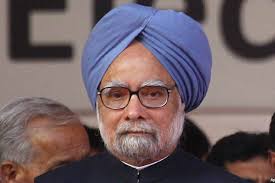
New Delhi, May 18: Outgoing Union minister Kamal Nath faulted Manmohan Singh for being uncommunicative — saying while lack of communication was at the root of the government's problems, the PM's silence was the worst.
He regretted that Congress's approach to politics was a few years behind the times and the party needed to revamp its organization.
In a TV interview, Nath singled out UPA's rights-based entitlement schemes for hurting the party, saying Congress did not realize India had become "aspirational" and was looking for things like material gains. He said the party's policies and approach were a few years behind the times.
The argument may, in part, explain why Congress was rejected by all classes despite giving pro-poor schemes as a "right" and making them the main campaign plank, contrary to the "no dole" pitch of rival Narendra Modi.
Kamal Nath said "rights", like on food, work and land, did not enthuse people who saw it with a sense of entitlement and felt the government had to give them anyway. While the beneficiary section did not feel indebted to the government, there was a big middle-class which turned against the Congress for these "doles", he said.
The Chhindwara MP, who is close to the Congress first family, said the party suffered because of the false impression created about PM Manmohan Singh being a weak administrator and about the alleged interference of Sonia Gandhi in the functioning of the PMO.
He said neither was Singh a weak PM nor did Sonia meddle in his work but the party and the government failed to counter these perceptions and paid politically at the hustings.
Commenting on the defeat, Nath said Congress's Telangana gambit had backfired in the elections. He said while the party was looking for substantive gains in the polls for creating the new state, TDP and BJP managed to win as many seats in the region as Congress.






Comments
Add new comment